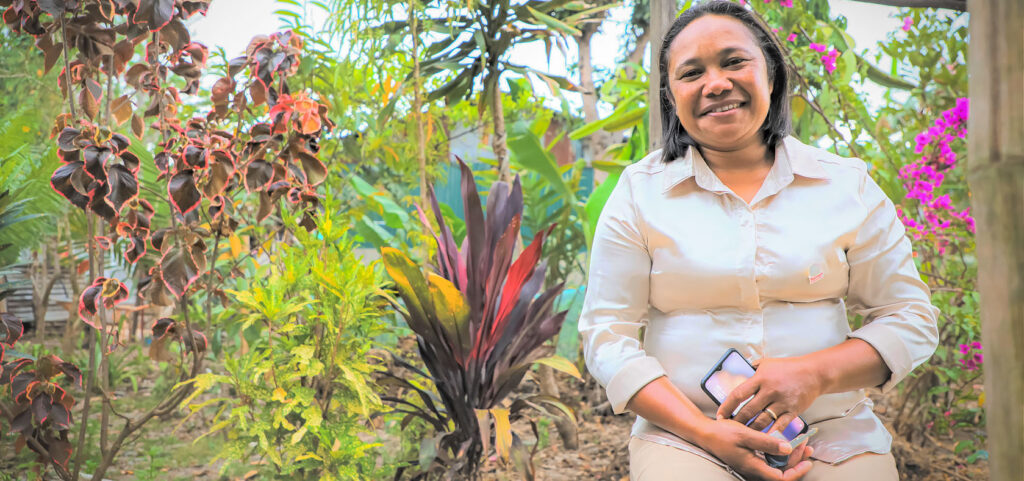Manuela Soares Brites, 42, is a mother, an entrepreneur, and a field officer in Ermera, Timor-Leste, for the Connect with Respect programme, which works with parents and teachers in three municipalities to promote gender equality and end violence against women in the family and community. The programme is part of the European Union-United Nations Spotlight Initiative and was jointly implemented by UN Women and the non-governmental organizations (NGOs) Aloha Foundation and Mane ho Vizaun Foun (Men with New Vision). This interview took place on 28 September 2022.
It was in 1995 that I terminated my ninth grade study and moved to live with my husband along with his adopted family. Days and days I passed just being at home and only doing things I was asked to do, which mostly helped my husband. The household work and farming were mostly done by us because all his cousins went to school.
One afternoon, I made the decision to leave the house with our daughter and ran to mother-in-law’s house. A few hours later, my husband came and asked me to go back, but I said no. So he decided to stay with us.
My husband started to work in construction and I started to engage in activities outside. Then I was invited by our chief village to be one of the village’s youth leaders. Then I was called to work in the church.
Back from the devastating crisis in 1999 [transition to independence from Indonesia], my husband came home and told me about a one-year school program in Dili by the UNMIT (United Nations Integrated Mission in East Timor) and Ministry of Education for those who didn’t have a high school degree. I didn’t think twice. My husband … took care of the children and did the household work when I was at school.
With the certificate earned, I worked doing some administrative work at the Canossian nuns in Dili. In 2012, I started working for the NGO Alola Foundation … and since 2021, as the field officer for the EU-UN Spotlight Initiative in Ermera and leading the Connect with Respect programme in five schools. The coordination work I’ve been doing with the local authorities leveled up my confidence to deliver training, make decisions and reports. I’ve been also attending capacity-building on building respect, gender equality and ending violence against women as part of the Spotlight Initiative.
Since then, I’ve been aware that to build a respectful and healthy family, we (should) treat our girls and boys equally. Our boys did more of the household work. My husband and I also didn’t think twice about sending our daughter to the university. Everyone also started to help with the family garden business.
Our first daughter has told me she would pay for my study at university. My husband also said that when he receives his veteran’s money, he would like to invest in my education. And I want to study agriculture to help expand the farm.”
Aticle Credits: UN Women
